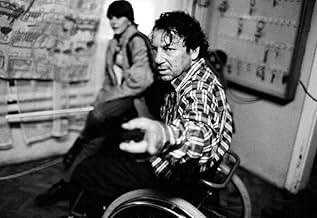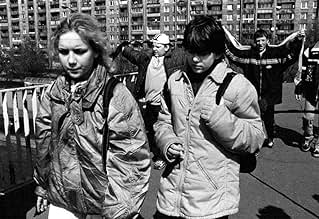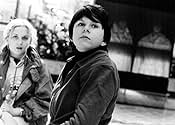Hi Tereska is a bitter coming-of-age story set in the working-class neighborhood of a post-industrial Warsaw. Full of a talent that promises the possibility of a brighter future, Tereska, an aspiring fashion designer enrolls in a tailor-training program with dreams of fleeing her sordid surroundings for the glamorous fashion world of Paris. Yet how can she escape when everywhere she looks there is a no-exit sign? With its stunning black and white cinematography, the bleakness of Tereska's world is aptly depicted. From the pathetic figure of her drunken father and tired, working-class mother to the sting of betrayal by her only friend, the bright 15-year old is slowly tarnished and worn away by an environment that strips away her humanity because it offers her nothing else.
However, it would be too easy to write off Tereska as just another victim. Polish director Robert Glinski takes the film a step beyond the trappings of an oh-so sad too bad ruination of a bright kid, and genuinely shocks the audience with his uncompromising portrayal of the vicious cycle of poverty and violence. By the end of the film I was left reeling as I watched the downward spiral of a sweet girl becoming increasingly sadistic and cruel, her vulnerability a threat to not only herself, but to others as well.
First time actor Aleksandra Gietner, cast at a reform school, delivers a genuine and powerful performance that is at times painful to watch. Her style of acting is largely understated-emotions are not cheaply posed on the features, yet often swim just below the surface, contained by Tereska's hardened exterior, to escape only occasionally in an unadorned tear. The guardedness of Tereska's emotions does more to reveal her secret hopes and fears then out-right expression ever could.
Innocence lost is a common theme in cinema, yet rarely is it as bleak and unadorned as Hi Tereska. A bitter pill to swallow without any of the inane albeit soothing comic relief that often candy coats difficult issues in Hollywood film, Hi Tereska is not easy to stomach, but its stark honesty makes it worth the discomfort.



























